QuestionI have a newborn kitten it was born on sat and unfortunatly the mother cat
rejected it after she had to go o the vets today for a check over by the time
she came back she wasnt interested in the kitten leaving us no choice but to
hand rear it... everything seems to be going well i have managed to stimulate
urine but no stools, please can you tell me for how long this can go on befor
becoming a cause for concern??, and also if you have any other tips, i have
used a number of different types of cloths dampened with tepid water.
thanks kelsey
AnswerKelsey,
First of all, good for you for taking the time to hand rear the kitten. The awful truth is that when the mama rejects a kitten, there is usually a good reason, and the success rate for survival of these kittens is not very good, so if the kitten does not make it, it is not because you did not try, it is because the kitten was never meant to live. Having said that, we still try to pull those kittens through against the odds and, every once in a while we have success.
Are you bottle feeding or tube feeding? It does make a difference. I prefer bottle feeding because it is harder for the kitten to aspirate with bottle feeding. On the other hand, with tube feeding, there is no question about how much the kitten is getting in a feeding.
There is a marvelous little book called "Hand-Raising the Orphan Kitten" by M. L. Papurt, DVM; Barrons Education Series, Hauppage, NY, 1999.
You can feed the kitten 4 times a day, e.g. 7:00 AM, 1:00 PM, 7:00 PM, midnight.
You will also need a small scale (like a postal scale) to weigh the kitten. The kitten should gain weight every day. It should gain about 4 oz (100 g) of body weight a week until weaning (at 4-5 weeks of age).
Bottle feeding: If the kitten is having normal stools, feed the kitten as much as it will take at a sitting. The kitten should take about .1 oz (3-4 ml) per every 4 oz (100 g) of body weight in a sitting. The kitten should be getting a total of approximately .8 oz (8-10 ml) of formula per every 4 oz (100 g) of body weight every day.
Tube Feeding: Your vet can show you how to tube feed. You should be giving your kitten approximately .1 oz (3-4 ml) per 4 oz (100 g) of body weight in each of the 4 feedings. The kitten should be getting a total of approximately .8 oz (8-10 ml) of formula per every 4 oz (100 g) of body weight every day.
We like to use Just Born or KMR (available as kitten milk replacers in most pet supermarkets) as the basis of a kitten formula. For the first 2 weeks, the kittens should be getting a more diluted formula (cut 1-1 with unflavored Pedialyte). If you cannot find either of these you can do a homemade kitten formula. Get back to me and I will give you a couple of recipes. IMPORTANT: Make sure the formula is warmed to "blood heat". A couple of drops should be comfortably warm on the back of your hand. If the kitten will not take it or really complains, it is either too hot or too cold.
After every feeding, you can stimulate the genital/anal area gently with a cotton ball dipped in warm water. It should urinate at almost every feeding. If it is getting enough to eat it should poop once a day. If you think it is not pooping at all, you may have to visit the vet. I would expect it would take a couple of days for the newborn to get the hang of eating so that it begins to poop regularly. Also, you should "burp" the kitten to make sure it gets rid of any excess air it took in with the bottle or tube.
At this age, the kitten cannot regulate its own body temperature, so it is important for the kitten to be in a warm draft free place with old toweling or sheeting for bedding. Lots of human contact will be a good thing for the kitten.
Please come back to me with nay questions you may have.
Remember, even after all this, if the kitten does not survive, it was not meant to be. Please do not blame yourself. This whole business tends to have a very low success rate.
BTW, another really good book on general kitten care is "Kittens for Dummies" by Dusty Rainbolt, Wiley Publishing, Hoboken, NJ, 2004.
Best regards... Norm.

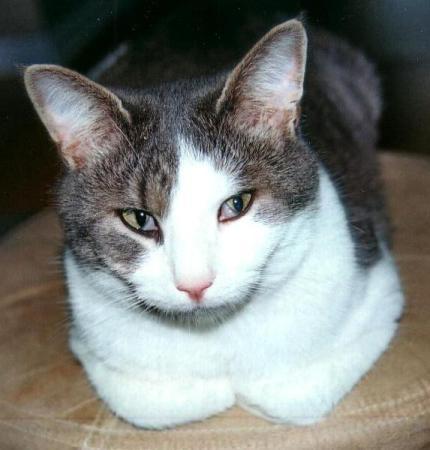 third eyelid, weight gain, irritability
Question
third eyelid pic
I have a 2 year old male cat
third eyelid, weight gain, irritability
Question
third eyelid pic
I have a 2 year old male cat
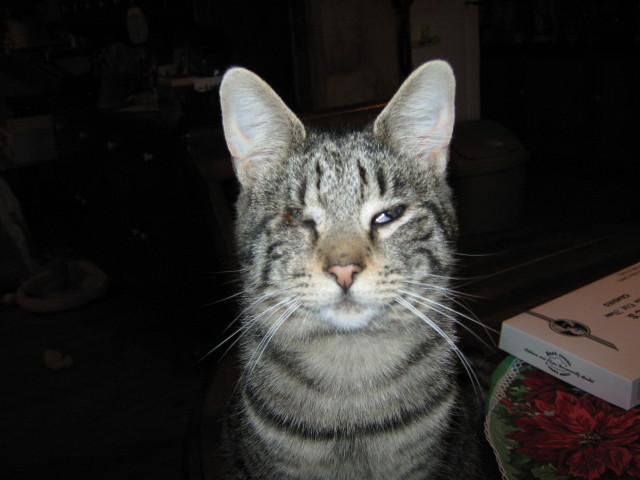 What breed is Jerome the Cat
Question
Jerome the Cat
Hi Karen.
Last summer on my da
What breed is Jerome the Cat
Question
Jerome the Cat
Hi Karen.
Last summer on my da
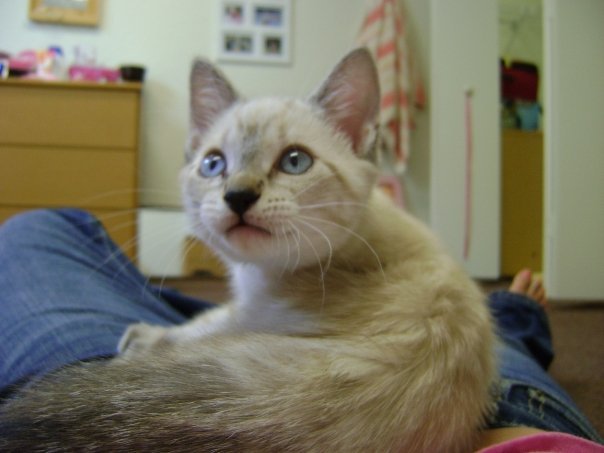 What kind of cat do i have?
Question
Chula
Ive been trying to figure out wha
What kind of cat do i have?
Question
Chula
Ive been trying to figure out wha
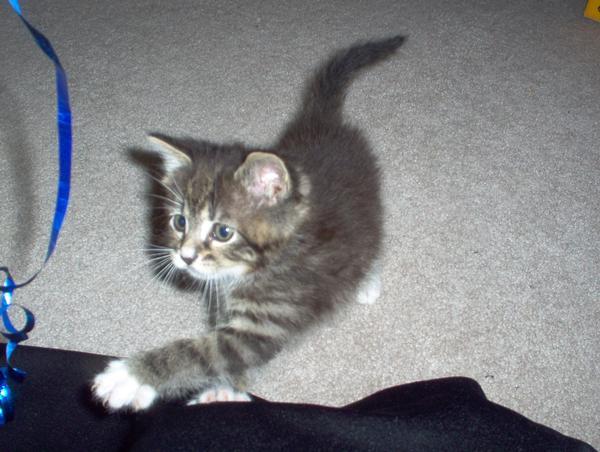 runts
Question
stubby(my cat)
Can the mother chew off
runts
Question
stubby(my cat)
Can the mother chew off
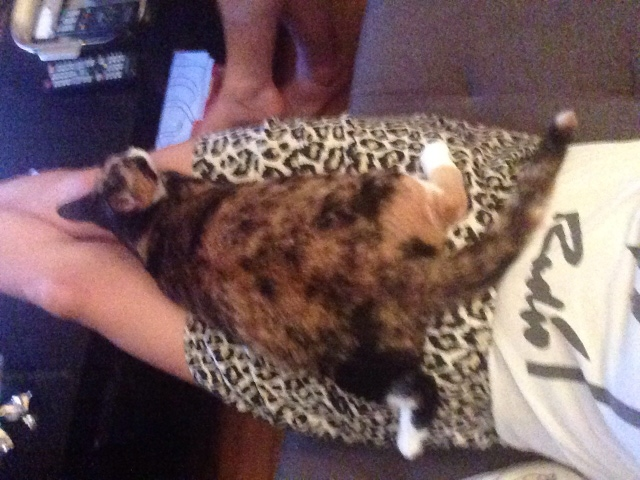 Cat eating too much?
Question
Chickpea
Hello,
Ive attached a photo of
Cat eating too much?
Question
Chickpea
Hello,
Ive attached a photo of